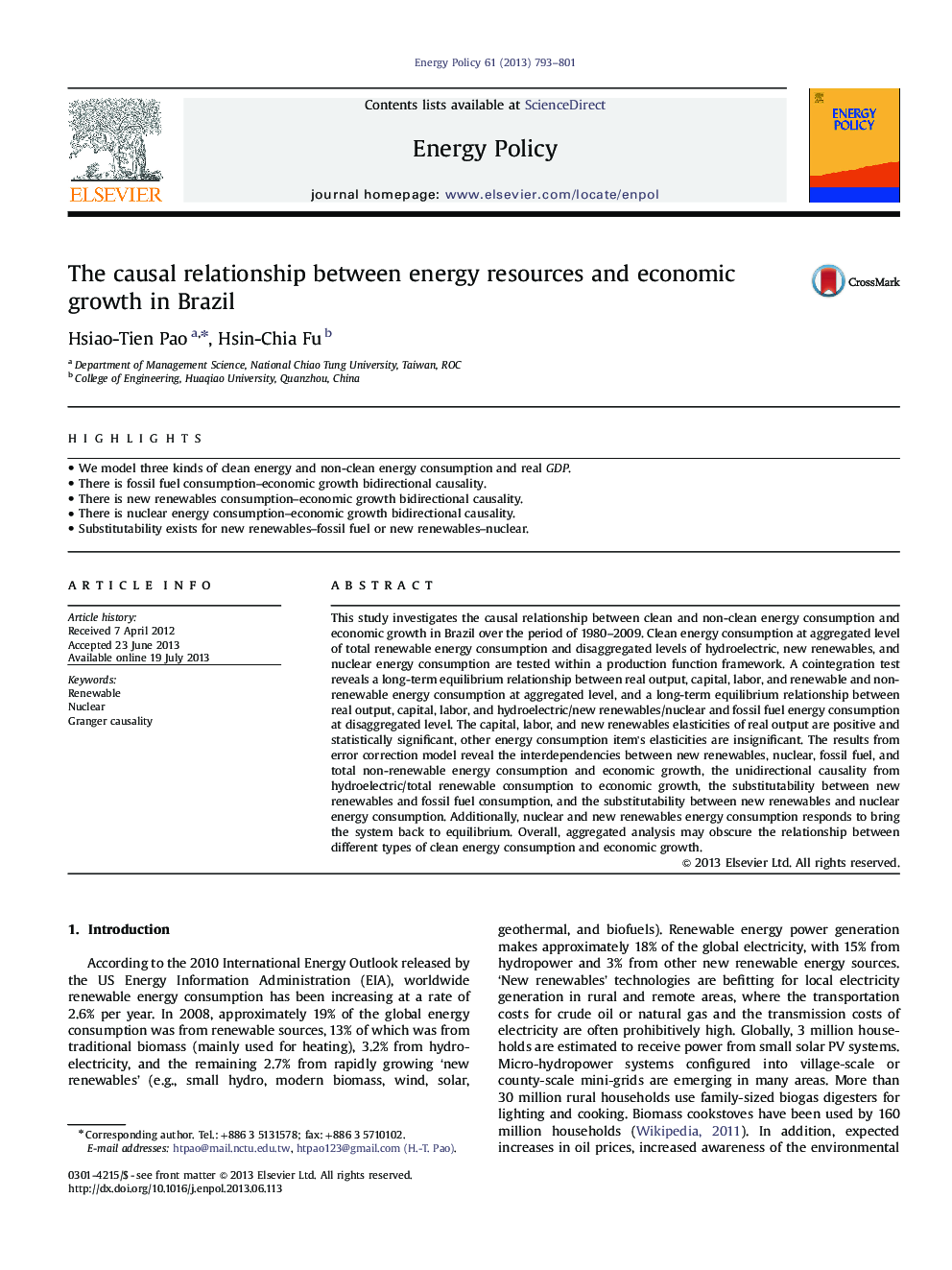| Article ID | Journal | Published Year | Pages | File Type |
|---|---|---|---|---|
| 7404937 | Energy Policy | 2013 | 9 Pages |
Abstract
This study investigates the causal relationship between clean and non-clean energy consumption and economic growth in Brazil over the period of 1980-2009. Clean energy consumption at aggregated level of total renewable energy consumption and disaggregated levels of hydroelectric, new renewables, and nuclear energy consumption are tested within a production function framework. A cointegration test reveals a long-term equilibrium relationship between real output, capital, labor, and renewable and non-renewable energy consumption at aggregated level, and a long-term equilibrium relationship between real output, capital, labor, and hydroelectric/new renewables/nuclear and fossil fuel energy consumption at disaggregated level. The capital, labor, and new renewables elasticities of real output are positive and statistically significant, other energy consumption item's elasticities are insignificant. The results from error correction model reveal the interdependencies between new renewables, nuclear, fossil fuel, and total non-renewable energy consumption and economic growth, the unidirectional causality from hydroelectric/total renewable consumption to economic growth, the substitutability between new renewables and fossil fuel consumption, and the substitutability between new renewables and nuclear energy consumption. Additionally, nuclear and new renewables energy consumption responds to bring the system back to equilibrium. Overall, aggregated analysis may obscure the relationship between different types of clean energy consumption and economic growth.
Keywords
Related Topics
Physical Sciences and Engineering
Energy
Energy Engineering and Power Technology
Authors
Hsiao-Tien Pao, Hsin-Chia Fu,
